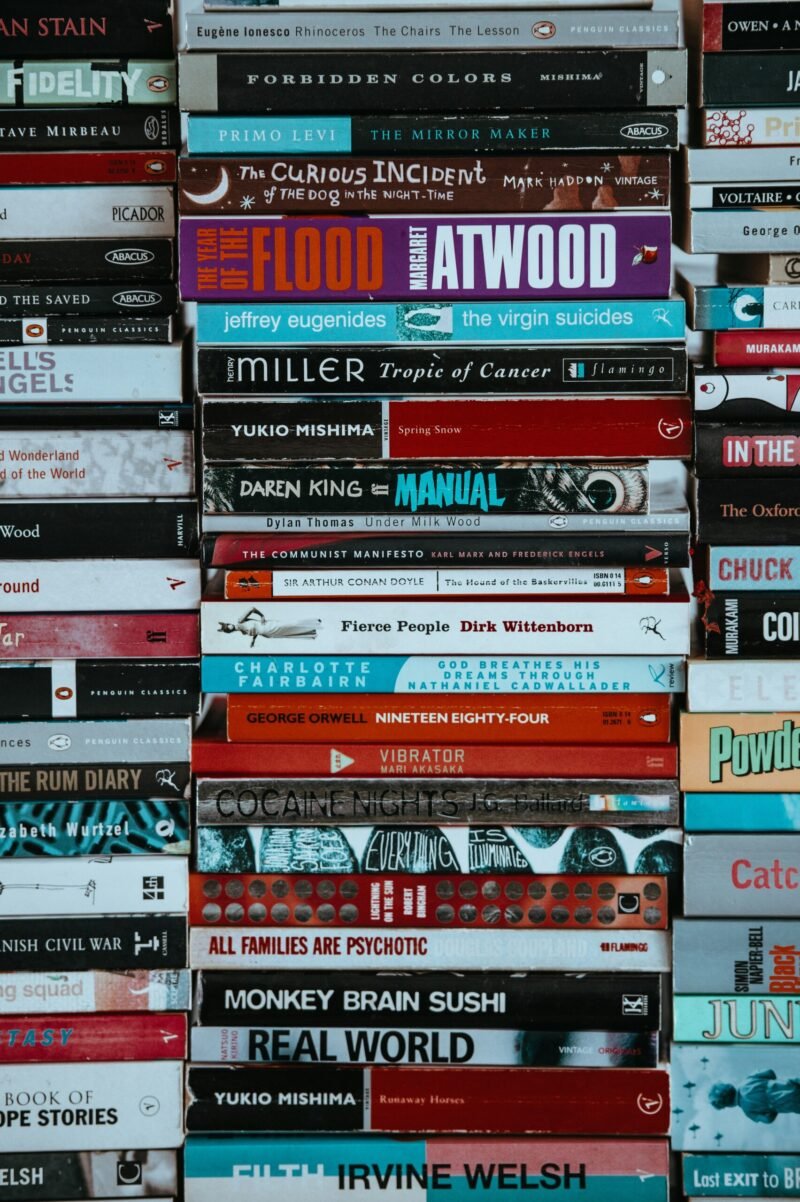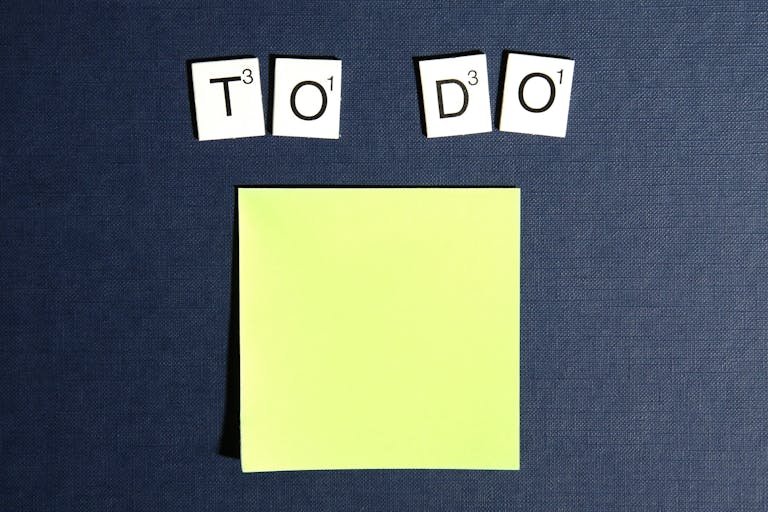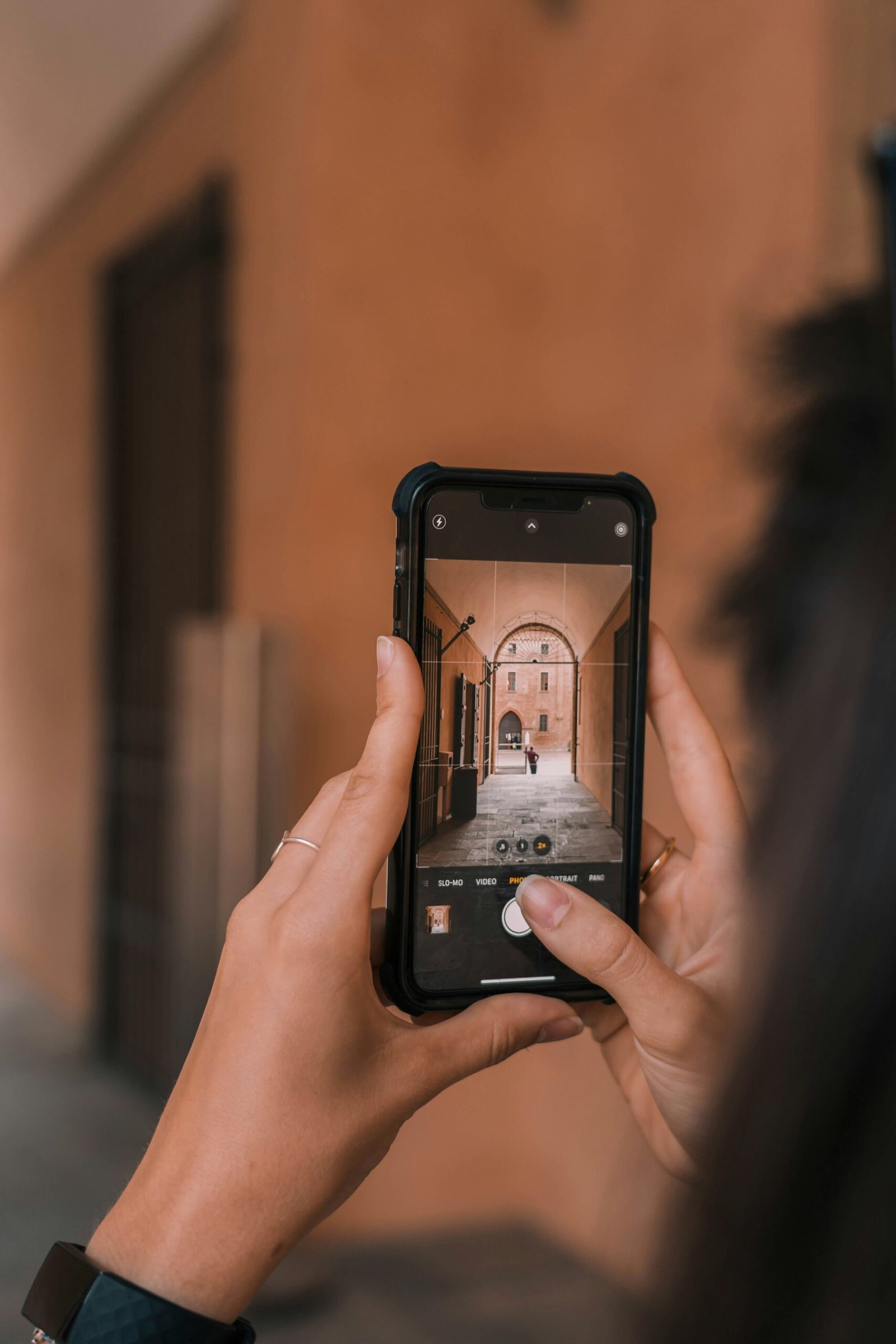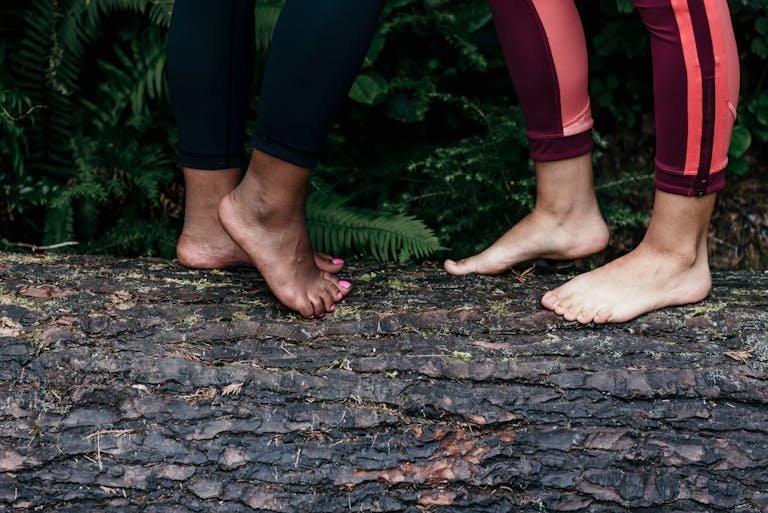How To Declutter Your Books – Streamlining Your Personal Library
Are your bookshelves double stacked? Do you have a “to be read” pile containing books you purchased more than a year ago? Is that pile taunting you with a feeling of “should be read” rather than “want to be read”. If this sounds familiar, then perhaps it’s time for you to declutter your books.

Cluttered Bookshelves – Our Unmade Decisions
When discovering minimalism and setting about decluttering, what becomes evident early on is just how many decisions we are simply not making. What started out as those neatly stacked bookshelves, has now become a double stacked mess. Books wedged horizontally between every available gap. With each passing month and year, seeing the “read”, the “to be read”, and the “never to be read” stack increase until it’s out of control. This goes on until we are simply are repelled by the thought of the task ahead.
The first step in decluttering your books and reclaiming control is simply to set the intention and make a decision to start the process!
Why Should You Declutter Your Book Collection?
If you need a little more encouragement on why you should declutter your books, try to focus on how your life will be better with the excess removed.
Some key benefits are follows:
- Reclaim valuable space in your home
- Focus on books you truly value and love. Curating your books allows you to focus on those that genuinely resonate with you and bring joy.
- Create an opportunity to benefit others by sharing or donating those you no longer want or need
- Easier to organise and store creating a more harmonious and balanced home
- Reduce dust and allergens
- Letting go of books that no longer serve a purpose can be liberating, freeing you from the weight of unused items.
Why Books can be hard to let go of?
We tend to think of our personal libraries as a book collection. Once we label it a collection, our minds naturally thinks of it as a whole, rather than a number of individual items, that may or may not be serving our situation well. If your collection spans a significant portion of your life, it will be embued with a whole host of memories and personal stories that can make this a surprisingly daunting process. A common struggle in this process is the sentimental attachment we give to books. Perhaps you have a novel gifted by a loved one or a textbook from your school days that holds emotional significance. While it’s natural to feel attached, it’s important to differentiate between items that genuinely enrich your life and those that simply occupy space.
Preparing for Your Book Decluttering Journey
Setting a Clear Intention for Your Decluttering Process
Try to set a clear intention or goal that you want to achieve when decluttering your books. This could be to reduce them so your books fit the current shelf space, single stacked of course! Alternatively, you may want to take this opportunity to reduce the number of shelves or bookcases you devote to your library.
Gathering Necessary Supplies
It’s useful to have a couple of boxes or some strong bags to hand. These will be used to sort the books into categories: keep, donate, sell or recycle. Having these boxes ready helps streamline the process and makes decisions easier.
Assessing Your Current Collection
When starting to declutter your books, be realistic with yourself and set aside some time and space to work through collection. This may be a single session or a series of sessions for those with larger collections. I would recommend that you remove all of the books from your shelves. Take the opportunity clean the shelves while these are clear. It really can be quite surprising just how many books you have, when you unleash them from the shelves.
Categorising Your Books for Efficient Decluttering
Once all the books are off the shelves, it’s best to sort these by type. This way you can work through the decision process on a category by category basis. This will help you to identify any duplicates you may have.
Fiction vs. Non-Fiction
Separate your fiction novels from the non fiction books such as personal development, self help or text books.
Read vs. Unread
Another useful distinction within each of these categories is to separate those you’ve read from those that remain unread.
Sentimental Value vs. Practical Use
When we start to assess the books we own, it’s good to consider which hold sentimental value for you. Perhaps it was an award at school, a book handed down from a loved one or a gift. Sone strke a chord with you and so forever more, will remind you of a time, place or person in your life.
The KonMari Method for Book Decluttering
For some, the KonMari method made famous by Marie Kondo in “The Life Changing Magic of Tidying Up” can be useful.
Just like we have got all of the books out from the shelves, the “spark joy” concept has us hold each book in our hand one by one and ask ourselves whether this book “sparks joy”. If it does then we should keep it and if it doesn’t we can thank it for its role in our life and feel free to set it free.
11 Questions to Ask Yourself When Decluttering Books

If the KonMari is not for you, and it does seem to divide opinion, why not ask yourself the following questions.
The easy questions
- Have I read this book? – A simple yes or no.
- Will I read it (again)? – Again a simple yes or no. If a no then it’s time for it to go!
- Does it have sentimental value? – Perhaps it reminds you of a stage in your life when you first read it, or a holiday/vacation you took or perhaps a special someone in your life.
- Is the information still relevant? – This tends to apply to non fiction but ask yourself whether the info is relevant to you or whether its now outdated
- Can I easily access this information elsewhere? – The answer is almost always yes to this in the age of the internet
The more difficult questions
- Does it align with my current interests? – The answer to this may be no, and you may still want to keep it. That’s fine, Minimalism isn’t about deprivation. It’s just important to make the decision to keep or get rid of it. If you’re keeping it, it’s good to know why! This is at the heart of our minimalism practice. We’re searching for congruence and to make space for the things that truly matter.
- Am I keeping it out of guilt? – Perhaps this was a gift from a loved one or something you inherited that you feel others would disapprove of you getting rid of.
- Would someone else appreciate it more? – If you do, you should pay it forward, books are there to be read and why not have someone else benefit from what you longer need.
- Does it fit my current lifestyle? – Just like your current interests, it’s good to ask whether it aligns with your lifestyle. Perhaps you have some books associated with an old hobby or interest that you no longer practice, or have moved on from. If it’s a hobby or interest that you have jettisoned, it may now be time to do the same with these books.
- Would I buy this book again today? – This one is easy, if the answer is no, then the book has to go!
- Is this a book I aligns to my true self or a fantasy self? – Many of us hold onto
By asking these questions, you can thoughtfully assess each book’s relevance and importance. This approach ensures that the books you choose to keep genuinely contribute to your well-being and align with your minimalist aspirations. Remember, the goal is not to discard books indiscriminately but to curate a collection that reflects your present self and enhances your living space.
It’s a marathon, not a sprint
Whichever method you use to declutter your books, I would suggest that you go through one book at time. As you progress through them, your confidence in your own decision making will get stronger. For large collections, you will want to do this in blocks. Take regular breaks so that decision fatigue doesn’t halt your progress.
Decluttering Specific Types of Books
When decluttering your books there are some specific categories of books that we all have that represent a time in our lives that may no longer be as relevant today.
Textbooks and Academic Materials
There are a few of these lurking around, books that were associated with old courses that we just couldn’t get rid, they may been expensive or we feel they are part of that experience, just like many of may have held onto our old college notes. This type of information is generally more easily found on the internet, and will likely be more up to date. Feel free to get this old these. In most cases these will likely be rubbish as syllabuses will have moved on.
Cookbooks and Recipe Collections
These quickly fill up our kitchen shelves and yet how many of us reach for them week to week? When most us eat the same regular meals, giving over so much space for these large cookbook collections seem odd. The aspiration of the fantasy life, the one where we’re a better cook, or living a healthier life may be at play. The internet can be an excellent source for new recipes that many of us will have within easy reach on IPads or tablets. Unless you cook frequently, you can feel free to declutter these books. Remember to scan or take pictures of the pages of recipes you will want to refer to.
Children’s Books and Young Adult Literature
Children’s books can be of somewhat varied quality by the time they have served their purpose. There may be some much loved stories such as the Julia Donaldson books that you just want to hold onto. There may be others that are sticky, have torn pages or scribbles over them that mean they are little value to others. Feel free to get rid of those.
Coffee Table Books and Art Books
These can be particularly bulky and take up room on shelves. I found that photography books were a particular problem for me and I was happy with access to so many of these images online that I no longer needed to retain them.
Dictionaries
With the easy access to the internet, keeping hold of large and cumbersome dictionaries is no longer needed.
Travel Guides
Many of us choose to hold on to travel guides from long since taken trips. They are linked to great experiences in our lives that we wouldn’t want to forget. Remember that this information is likely out of date and if you went there again you’d probably get a new updated guide or turn to the internet for the latest information. If you choose to keep them, that’s fine but be intentional and know why you are doing so.
Organising Your Remaining Book Collection
Now that you worked out what to keep its time to have those keepers reclaim their spot on your bookshelves. Single stack these books so that you easily see and access them whenever you are looking for something to read.
Sorting Methods: Alphabetical, Color, or Genre
I chose to sort my books by genre category and then I group together books in alphabetical order. There are some that choose to organise their books by colour of the spines. How you choose to organise yours will be down to personal taste. Check out instagram or Pinterest for inspiration if that spine colour idea appeals to your own taste.
What to Do with Decluttered Books
Now that you’ve determined those that got to go, it’s important as a minimalist to get rid of your declutterred books in a responsible manner.

Donating to Libraries, Charities or Nurseries
A good way to pass on your books is via small libraries or at charity shops. Libraries often accept gently used books to expand their collections or to sell at fundraising events. It’s advisable to contact your local library beforehand to confirm their donation policies and any specific requirements they may have. Remember to check that local charity shops are currently taking books before depositing these with them. You don’t want your declutterred books to become their waste problem. If you have some good quality children’s books you may want to contact a local nursery or playgroup to see if they are accepting donations.
Selling Books Online or at Used Bookstores
You may want to sell your books to generate some extra cash. Services such as Music Magpie, Ziffit or WeBuyBooks may be the way to go if you have a lot of books of limited value. If you have specific books that are significant in value then you may choose to sell on Amazon or via EBay. Secondhand bookstores may also buy used books, especially if they are in good condition and have resale value. Visiting these stores can be a convenient option, as it eliminates the need for shipping and handling associated with online sales.
Recycling Old or Damaged Books
There will be some books that are only fit for the bin. To ensure these get recycled, many local recycling centres have facilities to take these. Check local listings for what these can take.
Creative Up-cycling Projects for Book Lovers
There are some of you I’m sure that have a skill for up-cycling no longer needed books. For ideas check out other creative types on Pinterest.
Overcoming Emotional Challenges when Decluttering your Books
Books hold a specially place in our lives and so the process of working through your collection. Remember when letting go of the book you are not losing the experience or knowledge that it gave you, you’re just getting rid of the thing. You might want to take a photo of the cover or perhaps journal note about what that book gave you.
Dealing with Sentimental Attachments
This process will no doubt have emotions come to the surface. If you love the book after going through this process, keep the book. By now you will know why it’s important to you and why it deserves to stay in your life.
Addressing the “But I Might Need It Someday” Mindset
This is I might need it someday mindset is also often referred to as the “just in case”. There are very few books that you are ever going to need to retain for this reason. Give yourself the gift of space and room for those that you truly value to be seen.
Creating a “Maybe” Box for Uncertain Decisions
When tackling a decluttering project you may find having a maybe pile useful but approach this with caution. This can quickly become another way to avoid making decision. If you adopt this method have a plan for revisiting the Maybe pile and make those much needed decisions.
Celebrating Your Progress and New Space
Once you’re done with this declutter your books project, take some time to enjoy the new clearer space for your books.
Digital Solutions for Book Lovers
For those with limited space, going digital can be a useful option.

E-readers and E-book Subscriptions
Devices such as Kindles and Kobos can be a great way to keep up that reading habit without cluttering up your space. I have a Kindle but have to admit that I’m not quite ready to give up the feel of a real book in my hands. It can be useful when taking trips where space is of a premium. Sometimes though, I just want to be free of the tech and so can’t see a time just yet where I’ll go all in on the E Readers. Remember your bookshops need you and so use them or lose them!
Audiobook Platforms
Services such as Audible, Libro.fm, Scribd or Chirp can be a good way to continue to enjoy books where you have limited time to read. I must admit that I find unlike podcasts where I can listen while I’m doing other things, an audiobook does demand more of attention and so I its still paper or digital books for me. I had a period of listening to books before going to sleep only to find I endlessly had to go back to find where I dozed off.
Digital Library Services
There are a number of apps such as BorrowBox or Libby that can connect to your library card. These can get you access to digital books, audio books and publications. Access to the range of books and publications will very much depend on your individual library service arrangements.
Maintaining a Clutter-Free Book Collection
Now that you’ve declutterred your books, it will be important to pout in place steps to keep your future personal library clutter free.
Regular Review and Purge Sessions
Set aside time to periodically review your library and assess the books you own, considering whether they still serve a purpose or bring you joy. Doing this a few times a year will keep it manageable, ensure you stay aligned to your minimalist principles and avoid you having to repeat this significant exercise again.
Mindful Acquisition of New Books
When acquiring new books, try to follow the one in and one out rule so that you keep your collection at its new manageable state.
Embracing a Quality Over Quantity Mindset
As Minimalists we are aiming for quality over quantity, a few well-chosen, meaningful books can be far more satisfying than a vast collection of unread volumes. We want that which remains to be of value to us rather than lost in amongst a pile of books that we have no connection to or may not even have ever read. By removing the excess, those that remain will better reflect who we are.
Practical Strategies to Declutter your Books
Taking action to declutter your books is a big undertaking and so once you have, you want to put in place strategies to avoid slipping back into a life of indecision.
The One-In, One-Out Rule
This tried and tested minimalist classic is a good way to maintain your newly declutterred position. Before buying a new book you should make a decision to let go of one you already have. This will ensure that your collection remains manageable.
Digital Alternatives: E-books and Audiobooks
E-readers such as Kindles and Kobos or the use of the audiobook services I mentioned above can be an effective way to avoid building clutter again in the future.
Use local libraries
Get a library card if you haven’t already and make use of your local libraries. Many of these are serving as community spaces these days and so utilising them regularly will help preserve their ongoing existence. Borrowing books instead of owning them can be a good way to support your minimalist goals.
Conclusion: Embracing a Curated Book Collection
Living with a curated book collection enables you to embrace who you are in the present moment. Enjoy that lighter feeling that comes from having made conscious decisions, determining what book means to you and deciding whether to keep or declutter them. What remains will benefit from having its own space and not hidden from view by the myriad of books that were a relic of your past or an obstacle for your future.
Reflecting on Your Decluttering Journey
You may want to take some time to think about the thoughts and memories that the process to declutter your books has raised. A curated collection serves as testament to your journey, showcasing the deliberate choices you have made to prioritise what matters most. Journaling can a useful tool to capture these thoughts and insights, allowing you to see how far you’ve come
Enjoying Your Streamlined Library
Take time to enjoy that can see what you own and quickly access them if and when you want to reread them or reference some of their contents.
If you found this post useful, you may want to check a couple more on decluttering.







